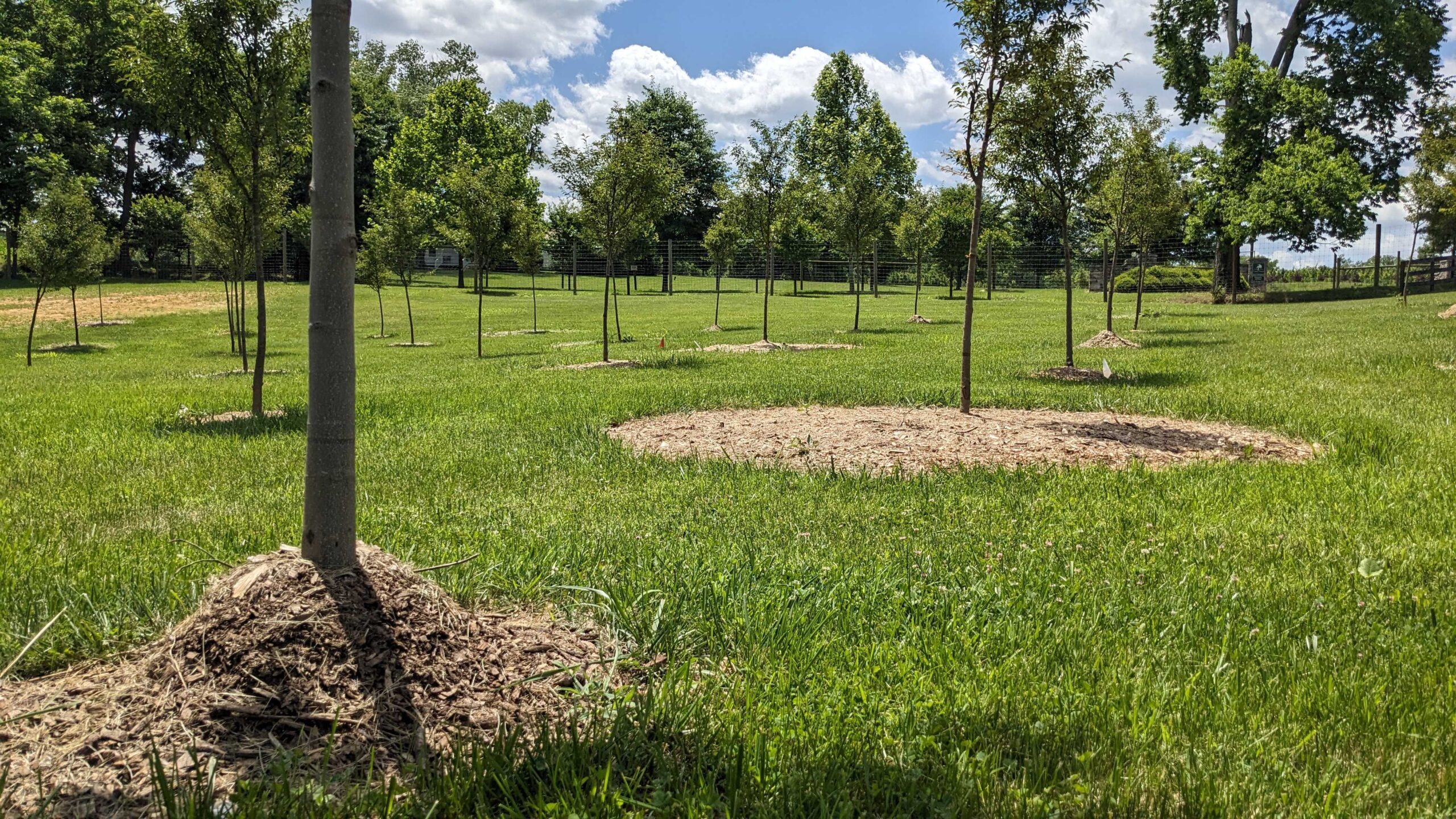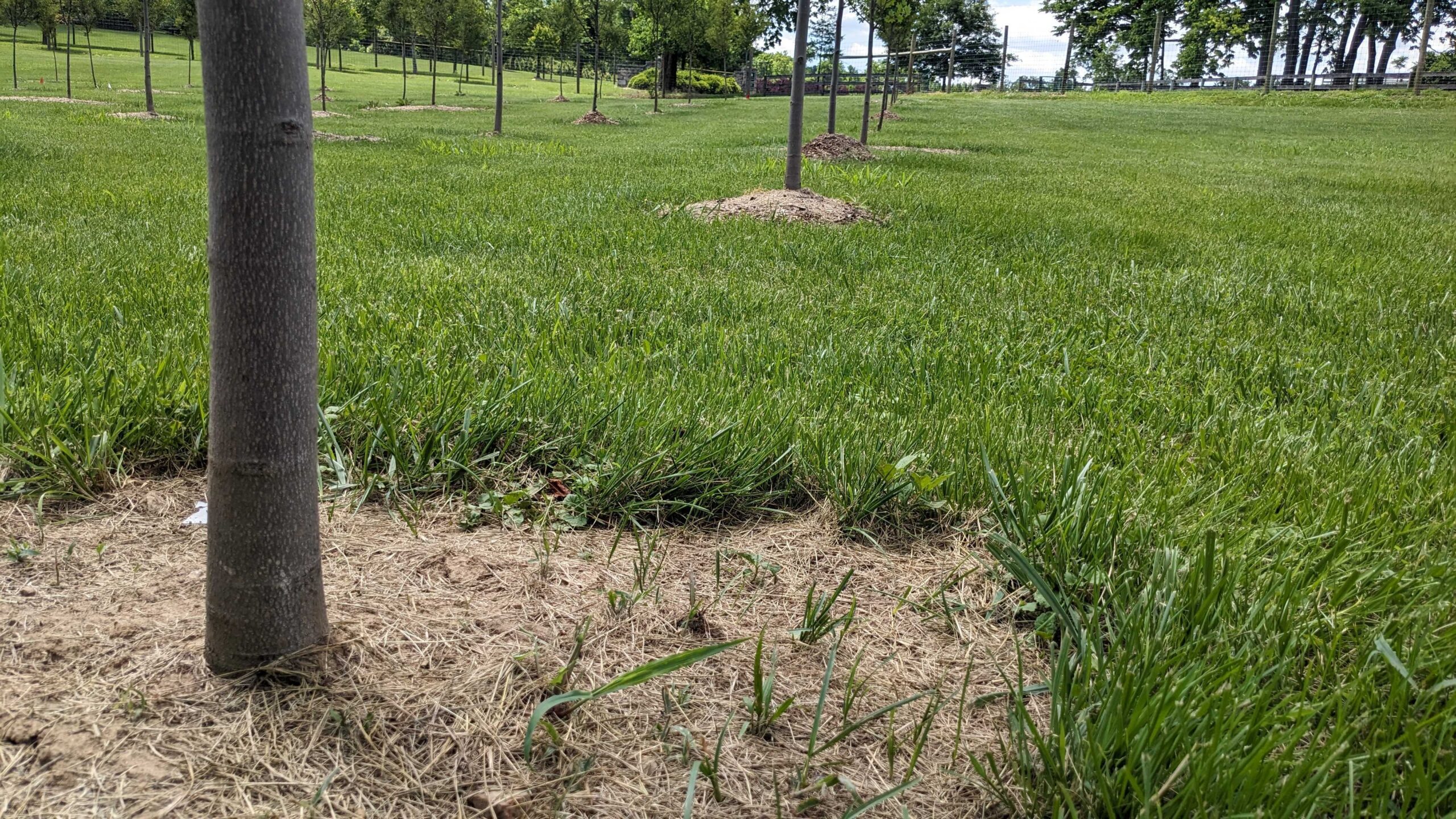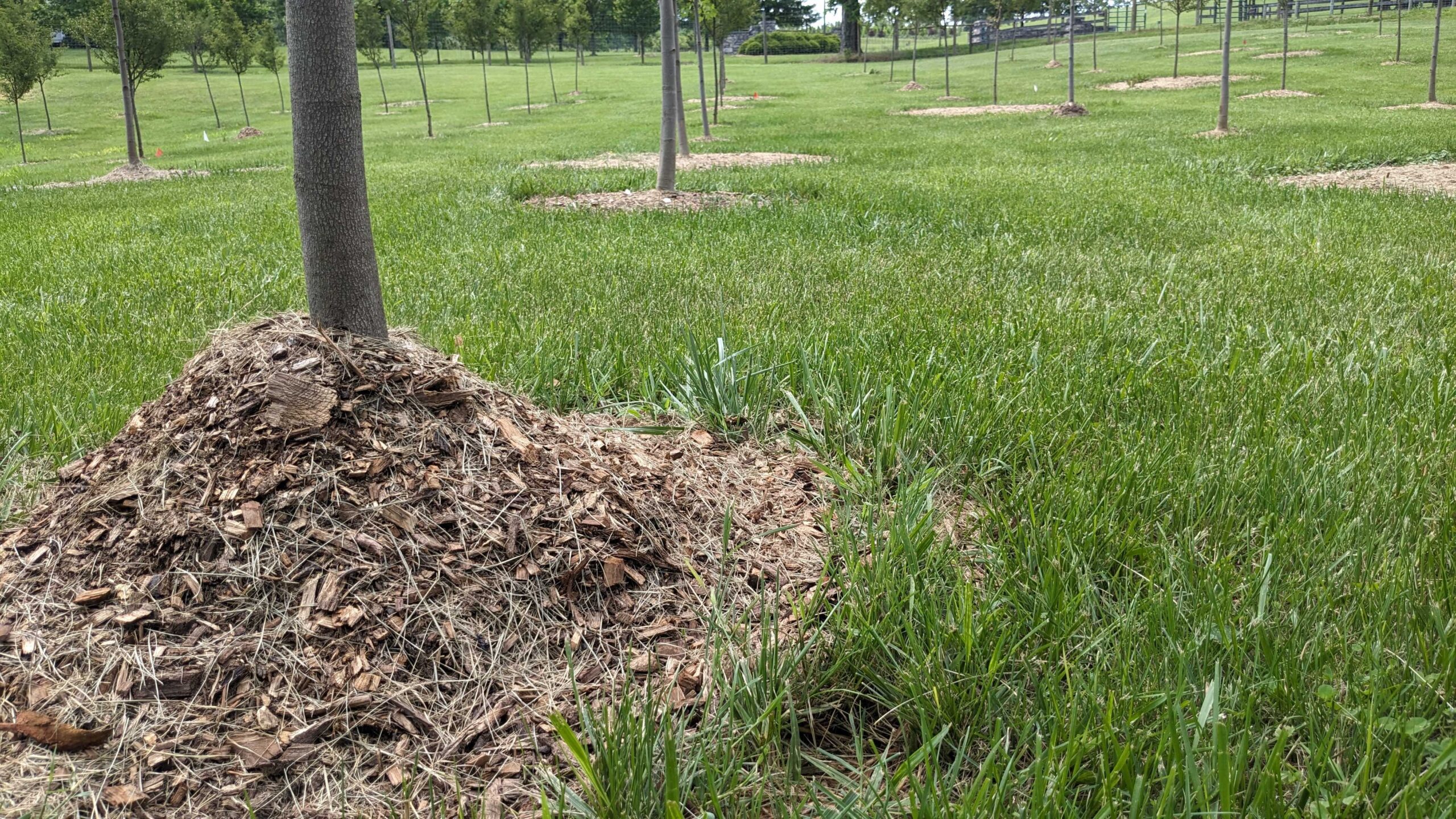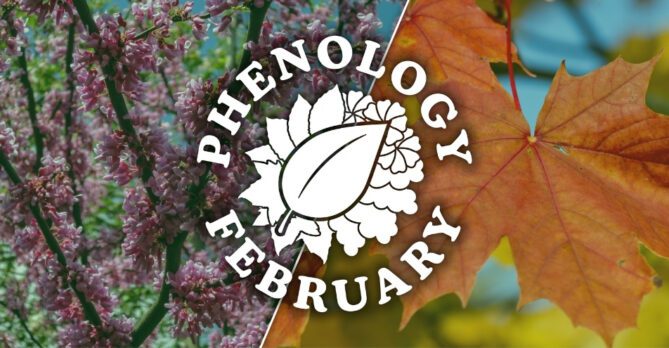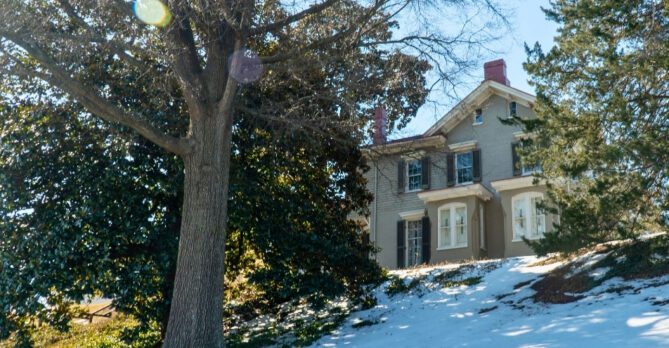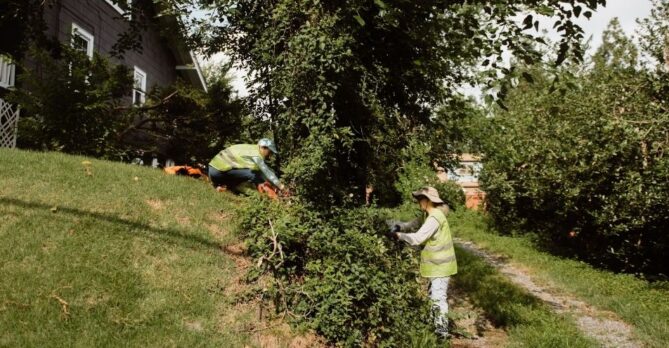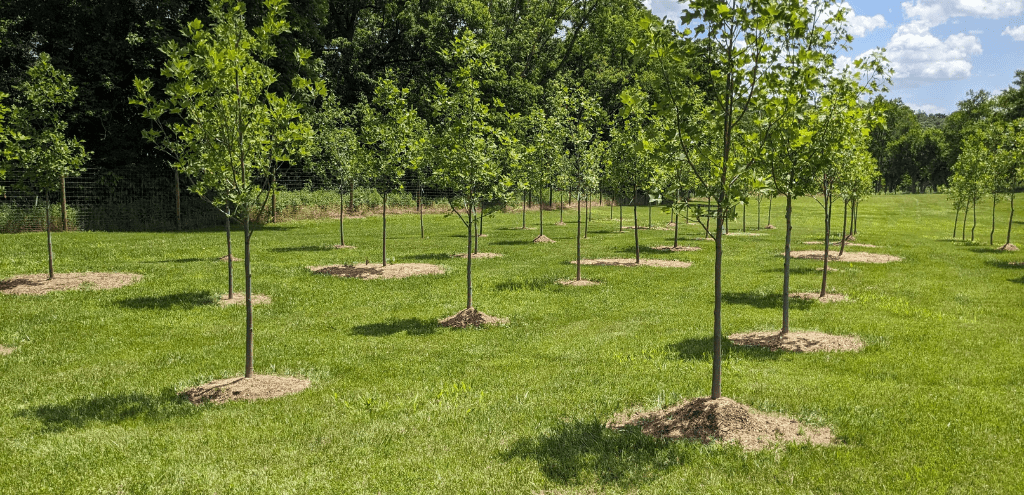
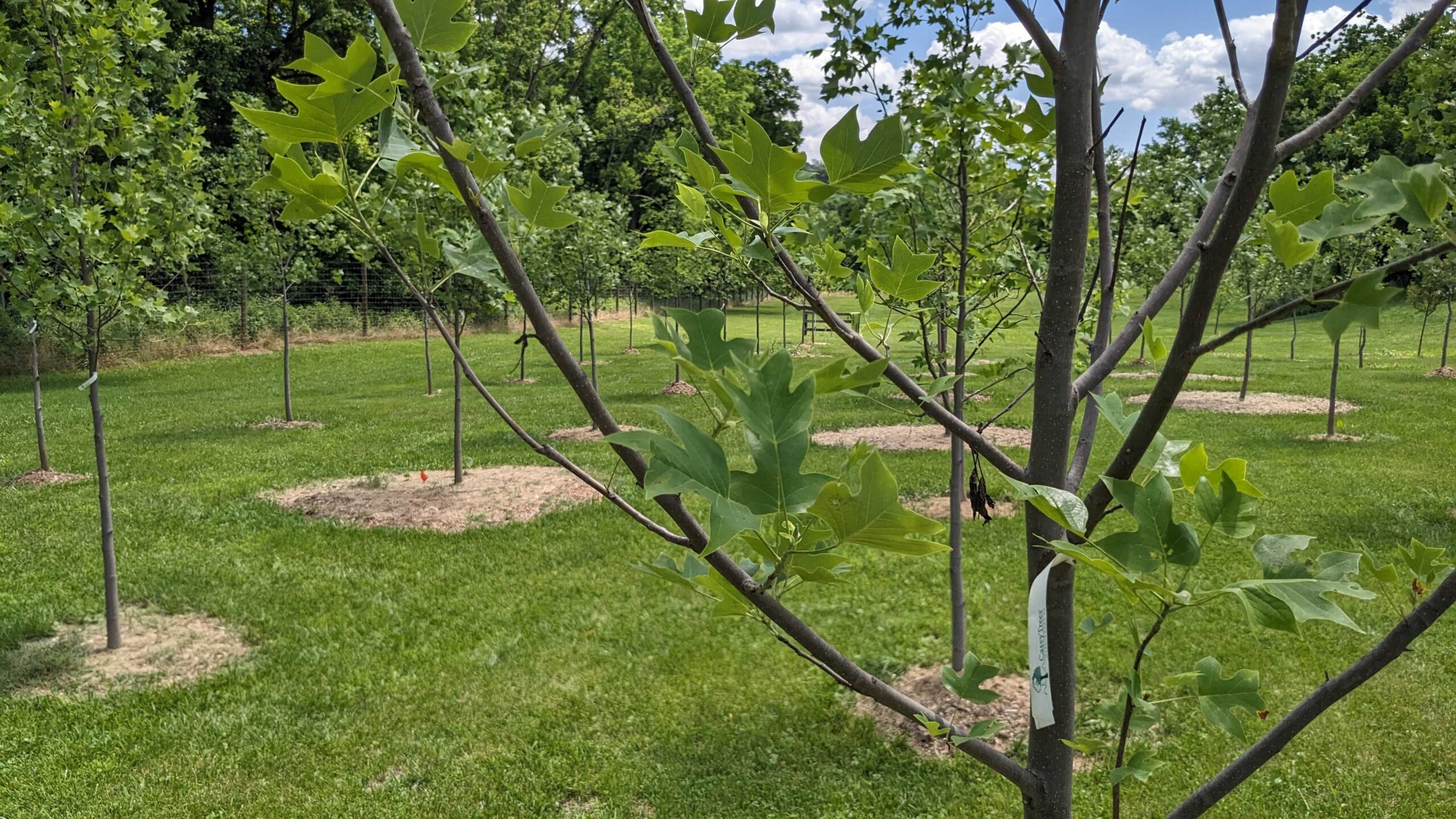 Volcano mulching, where mulch is piled high against a tree’s trunk in a cone-like shape, is known to be detrimental to tree health. This harmful practice can lead to bark decay, root suffocation, and increased susceptibility to pests and diseases. Despite widespread agreement among arborists and forestry experts about its negative impacts, there has been a surprising lack of comprehensive scientific research on the subject.
Volcano mulching, where mulch is piled high against a tree’s trunk in a cone-like shape, is known to be detrimental to tree health. This harmful practice can lead to bark decay, root suffocation, and increased susceptibility to pests and diseases. Despite widespread agreement among arborists and forestry experts about its negative impacts, there has been a surprising lack of comprehensive scientific research on the subject.
To fill this knowledge gap, Casey Trees and our partner, Bartlett Tree Research Laboratories, have teamed up to conduct long-term scientific trials on the effects of volcano mulching. At the Casey Tree Farm, we have established a dedicated research field with 100 trees: 50 Yoshino cherries and 50 tulip poplars. These trees are receiving various soil amendment and care treatments – some with a specific focus on volcano mulching practices. This collaborative effort aims to provide concrete scientific data on the long-term impacts of volcano mulching, potentially revolutionizing our understanding of proper tree care techniques.
The research design incorporates multiple variables to ensure a comprehensive analysis. We are testing different mulching depths, materials, and application methods to evaluate their effects on tree health, growth rates, and overall vitality. By using two distinct tree species, the study also aims to identify any species-specific responses to volcano mulching.
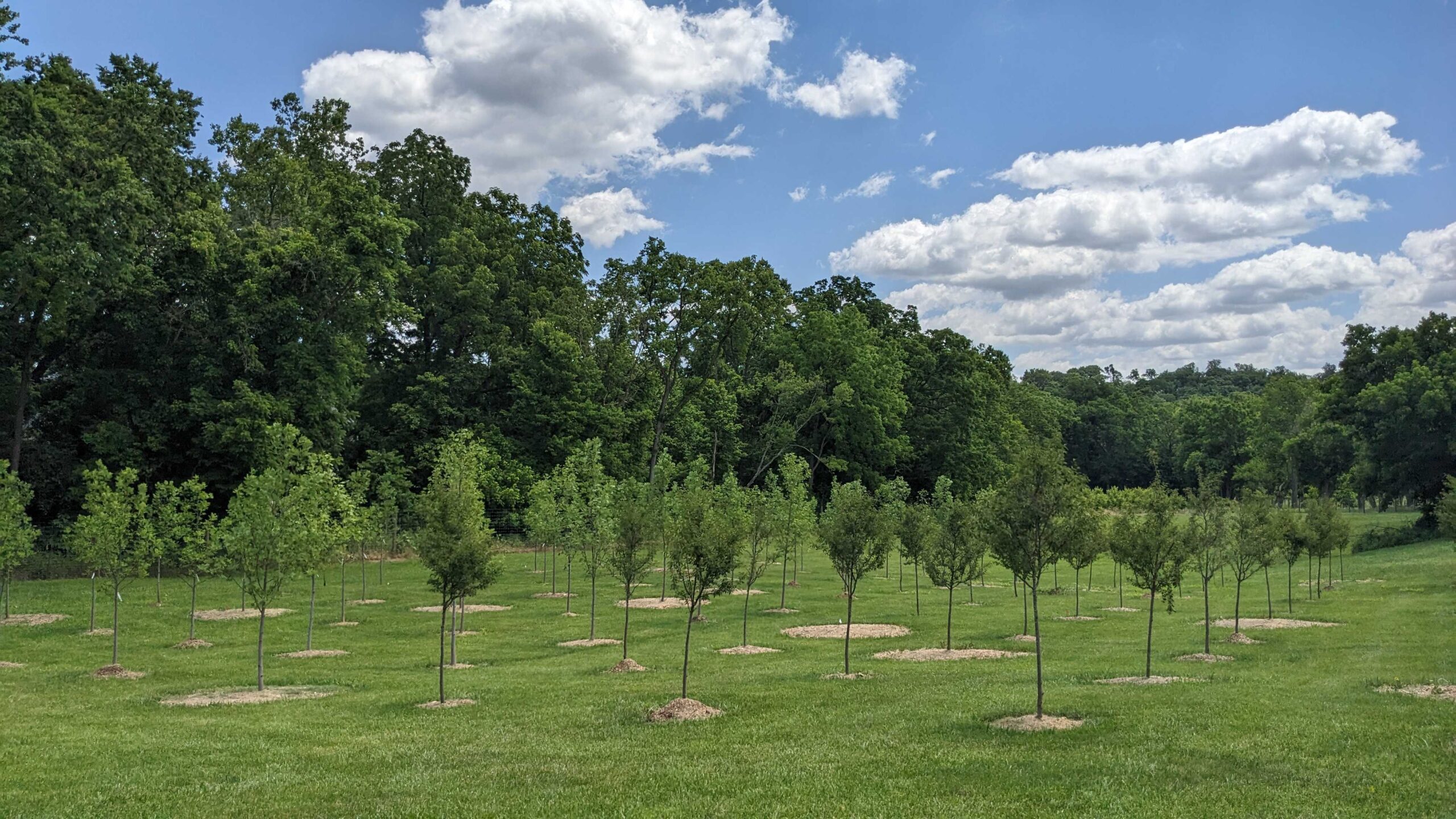
Throughout the trial, researchers from both Casey Trees and Bartlett Tree Research Laboratories will closely monitor various parameters, including:
- Root development and health
- Trunk integrity and bark condition
- Soil moisture levels and nutrient availability
- Presence of pests and diseases
- Overall tree growth and canopy development
This collaborative research initiative not only demonstrates our commitment to advancing arboricultural knowledge but also highlights the importance of evidence-based practices in tree care. As the study progresses, the findings are expected to provide valuable insights that will inform future tree care guidelines and potentially reshape industry standards.
By combining Casey Trees’ dedication to urban forestry with Bartlett Tree Research Laboratories’ scientific expertise, this partnership is poised to make significant contributions to our understanding of proper tree care techniques. The results of this study may ultimately lead to improved tree health in urban and suburban environments, ensuring the longevity and vitality of our valuable tree resources for generations to come.
